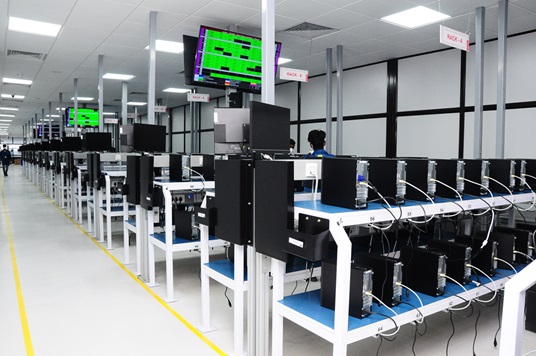In a significant move to strengthen its position in the global electronics supply chain, India has approved subsidies for some of the world’s leading tech hardware companies, including giants like Foxconn Technology Group, Lenovo Group, Dell, HP, and AsusTek Computer. This initiative falls under India’s Production Linked Incentive (PLI) scheme, aimed at boosting domestic manufacturing of desktops, laptops, tablets, and other tech hardware.
Ashwini Vaishnaw, India’s Minister for Railways, Communications, Electronics, and Information Technology, announced that 23 out of the 27 approved companies are ready to commence manufacturing immediately, with four others expected to begin production in the next 90 days. The move is part of Prime Minister Narendra Modi’s ambitious “Make in India” campaign, launched in 2014, signaling India’s commitment to becoming a major player in high-tech manufacturing.
The PLI scheme is anticipated to create 50,000 direct jobs and an additional 150,000 indirect jobs, with a total investment of US$360 million. The government’s statement estimates that the value of information technology hardware production will reach an impressive US$42 billion.
While this marks a significant step forward for India, it’s not without its challenges. Reports emerged that Luxshare Precision Industry Co, an Apple contract manufacturer, denied walking away from a US$330 million deal in India. The Shenzhen-listed firm asserted that it had “never made such an investment decision.” This discrepancy highlights the complexities involved in navigating the global supply chain, where misinformation and misunderstandings can impact major business deals.
In addition to economic considerations, India’s push for self-reliance in tech manufacturing is influenced by geopolitical tensions with China. The approval of subsidies for Lenovo, the world’s largest PC vendor, comes amid increased scrutiny of Chinese tech companies operating in India. In recent months, executives of Chinese smartphone maker Vivo faced legal challenges in India, including arrests for alleged visa violations and tax evasion.
The government’s intensified focus on scrutinizing Chinese companies operating in the Indian market reflects broader geopolitical dynamics. The move is not only about boosting domestic manufacturing but also reducing India’s reliance on imports from China. This comes at a time when global manufacturers are diversifying their production away from mainland China for various reasons, including geopolitical risks and the need to build more resilient supply chains.
While India’s PLI scheme has successfully attracted major players in the tech hardware industry, some Chinese companies like Xiaomi have faced legal battles and frozen funds in India over allegations of foreign exchange violations. The legal disputes and financial challenges underscore the complexities of doing business in a rapidly evolving economic landscape.
Meanwhile, Luxshare’s decision to expand its contract manufacturing operations in Vietnam, not India, adds an interesting dimension to the narrative. The company, a major Apple AirPods supplier and assembler of cutting-edge devices, received approval to invest an additional US$330 million in a plant in Vietnam’s northern province of Bac Giang. This move reflects the ongoing trend of diversifying production beyond China, indicating that multiple Asian countries are becoming key players in the global manufacturing ecosystem.
As India aims to transform into a new hi-tech manufacturing hub, the journey is bound to be dynamic, filled with challenges, successes, and global shifts. The subsidies provided under the PLI scheme signify a step in the right direction, but sustained efforts and strategic collaborations will be essential for India to establish itself as a major player in the ever-evolving landscape of global tech manufacturing.
(Source: Iris Deng | SCMP | India Briefing)









